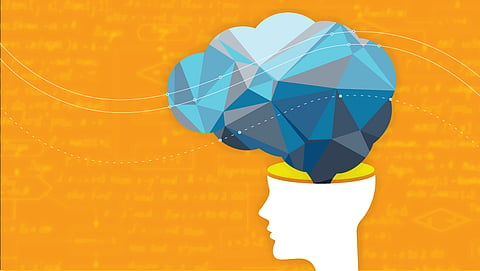

Unlocking the huge potential AI has to offer will shape the future of software development. The strategic business interest in this disruptive technology is increasing, companies across the world have gained smartly investing in AI. With more and more mature enterprises defining AI strategy it is predicted that AI tools alone will create trillions of dollars in business value in the years to come.
AI algorithms and advanced analytics have an immense potential into software development, offering seamless real-time decisions at scale. AI applications can perform complex and intelligent functions associated with human thinking. By capturing and analysing data from a variety of sources, which include sensors, remote inputs and microchips. Analytics Insight brings the top 5 AI platforms that transform and automate the modern software development-
The Google Cloud AI Platform offers machine learning, deep learning, NLP, Speech and Vision capabilities for software development on the cloud, these include-
• Machine Learning
With the Google Cloud AI Platform offering an integrated toolchain, software developers can easily develop machine learning models and expedite the development and deployment process.
• Deep Learning
Google Cloud AI Platform offers pre-configured Virtual Machines (VMs) to help software developers create deep learning applications. They can provision VMs on the Google Cloud that encapsulates popular AI frameworks. Besides software developers can also launch Google Compute Engine instances with already installed popular AI frameworks like sci-kit-learn, TensorFlow and PyTorch.
• Natural Language Processing (NLP)
The Google Cloud AI Platform offers NLP capabilities, to help software developers find out the structure and meaning of a text. Google NLP capabilities can be used to analyse text, with Google NLP API which is a RESTful API.
The Google Cloud AI Platform offers APIs for speech-to-text and text-to-speech capabilities using neural network models. The speech-to-text API built to convert audio to text supports 120 languages and their variations.
With its speech recognition capabilities, software developers can enable voice command-and-control features in their app. The Google text-to-speech API helps to create a natural-sounding speech from text, a capability that is immensely helpful to convert texts into audio files from MP3 or LINEAR16 formats.
Vision is another key capability of the Google Cloud AI Platform, that lets software developers derive intelligent insights from images. Google Vision AI Vision capabilities are offered through REST and RPC APIs which use pre-trained ML models to detect objects and faces and read handwritten and printed texts using these APIs.
Microsoft Azure hardly needs an introduction as a scalable could platform. Microsoft Azure AI Platform is a popular choice for AI development among software developers offering key AI capabilities, like-
• Speech capabilities like speech recognition;
• Machine learning (ML);
• Vision capabilities like object recognition;
• Language capabilities like machine translation;
• Knowledge mining.
The plus points of Microsoft Azure ML include its Python-based automated ML service, Azure Databricks, which is an Apache Spark-based big data service that integrates with Azure ML and ONNX, which is an open-source model format and runtime for Machine Learning.
IBM Watson AI solutions are specifically tailored for financial services, Internet of Things (IoT), media, healthcare, oil & gas and advertising. IBM Watson popular for its open AI for any cloud environment, pre-integrated and pre-trained on flexible information architecture lets developers expedite the development and deployment of AI application models.
IBM Watson offers developer tools like SDKs with detailed documentation. Software developers can integrate Watson Assistant to build AI-powered conversational interfaces. Besides they also get access to Watson Discovery, an AI-powered search technology, to retrieve information that resides in silos.
• IBM Watson has Natural Language Processing (NLP) capabilities, also known as Watson Natural Language Understanding (NLU) extends IBM Watson Speech to Text capabilities to software developers when building on the Watson developer platform.
• IBM Watson developer resources offer SDKs for Swift, Ruby, Java, Python, Node.js, .NET enabling Software developers to find a suitable SDK for their projects.
BigML development platform offers robust ML algorithms, both for supervised and unsupervised learning to automate predictive modelling tasks. Software developers can implement instant access to the BigML platform using its REST API, both on-premises and on the cloud. BigML is highly programmable and repeatable, and lets software developers use popular languages like Ruby, Java, Python, Node.js, Swift, etc. to code and scale-up their applications.
Infosys Nia AI platform allows software developers to build AI-powered apps that include the following AI capabilities:
• Machine Learning
Nia Advanced ML offers a broad range of ML algorithms operating at speed and scale, which simplifies building high-performing ML models.
• Contracts Analysis
Nia contracts analysis capability includes ML, deep learning and semantic modelling.
• Nia Chatbot
Developers can build AI-powered chatbots with Nia which offers an access to enterprise knowledge repository enabling software developers to automate actions through a conversational interface.
• Nia Data
Software developers can integrate their AI app with Nia data, a robust analytics solution offered by Infosys.
Join our WhatsApp Channel to get the latest news, exclusives and videos on WhatsApp
_____________
Disclaimer: Analytics Insight does not provide financial advice or guidance. Also note that the cryptocurrencies mentioned/listed on the website could potentially be scams, i.e. designed to induce you to invest financial resources that may be lost forever and not be recoverable once investments are made. You are responsible for conducting your own research (DYOR) before making any investments. Read more here.
